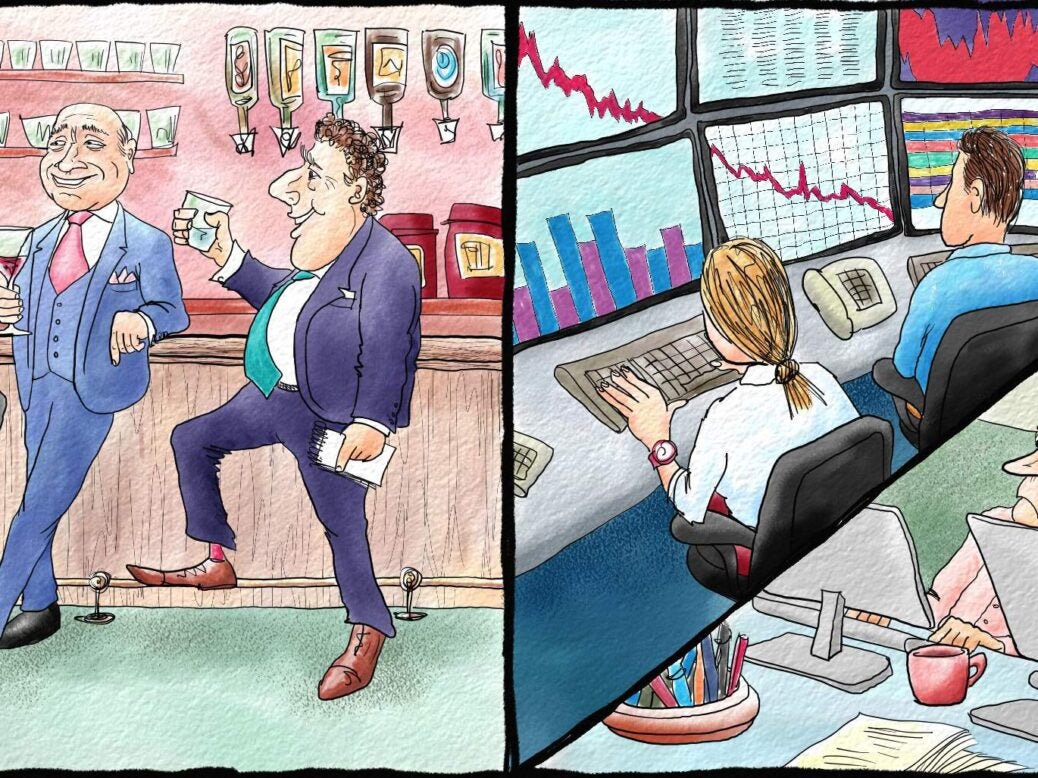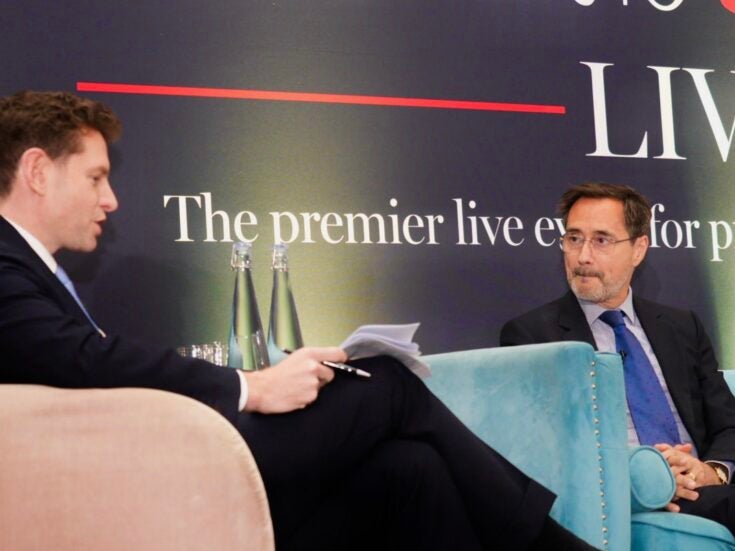
Financial journalism has fallen on hard times, says Stephen Fay, but the newspapers’ failings have opened the door for a new kind of expert coverage.
Michael Lewis, the distinguished author of bestsellers on complicated and obscure corners of the financial services business, has raked more muck than anyone else in the City and Wall Street. And where’s there’s muck, there’s brass. Lewis is the best-paid, most expensive financial journalist in the business, and he attributes the success of his vivid explorations of fear and greed in The Big Short and Flash Boys to the shortcomings of financial journalism. The stories he told should already, he says, have been ‘gobbled up’ by newspapers and magazines.
Financial journalism is vulnerable to its critics, but Lewis is not entirely fair to reporters in London and New York, who must work on a treadmill. Time is the scarcest commodity in modern journalism, but Lewis has enough of it to be able to expose the flaws, and to understand the language of modern finance. Books give him the space to develop a persuasive narrative, but he is right to detect a lack of imagination and ambition in much of today’s financial coverage.
It is 30 years since London’s financial revolution. After the Big Bang in 1986, the City became one of the world’s two financial centres, driven by American capital, global markets, and the computer terminal. Change happened so fast that financial journalism, slow to catch on, is still trying to catch up. The old City had been a club to which broadsheet newspapers belonged. The financial journalist’s day started in mid-morning, when he (it was almost always ‘he’ back then) usually slipped out for a quick gin with a contact, and to exchange the gossip before a tucking in to a splendid free lunch. ‘Nothing much happened before three in the afternoon,’ says a misty-eyed veteran.
Financial journalists in those days played a significant role as the principal source of information for bankers and brokers, dealers and directors. Prices would be recorded on the financial pages, company meetings reported; Big Beasts such as Patrick Sergeant of the Daily Mail and Fred Ellis of the Daily Express were serious stock-market tipsters. These days, lunch is usually a sandwich, eaten sitting in front of the terminal.
Today, information flows from a variety of sources. Since the speed of doing financial business increased exponentially, trades can be transacted on a Bloomberg terminal that also reports the news. Newspapers can still provide lucid, well-informed commentary: Martin Wolf sets the standard in the Financial Times, which remains a well-edited financial newspaper. But the hard graft of the in-depth research and analysis required to judge what to buy and sell in the market are now done on computers by mathematicians who have written the algorithms. Financial journalism has lost its mojo. So, what went wrong?
One defining moment was when Michael Bloomberg was sacked by Goldman Sachs in 1981 and used his pay-off to develop a financial one-stop shop by leasing computer terminals that would provide news, research and analysis, and the link to a trading platform. Bloomberg saw off opposition from Reuters, grew seriously rich and very powerful (he was mayor of New York City for three terms). His wire service was providing the same information as old-style papers, but faster. The newspapers grew to admire the news service well enough to steal from it, but Bloomberg wanted the wire to draw attention to the complete range of its products. Eventually newspapers were compelled to attribute stories taken from the newswire. ‘Bloomberg ate their lunch,’ says Peter Koenig, a former business editor.
One hallowed custom of City journalism had been ‘the Friday Night Drop’. This took place after the stock market closed at 4pm on a Friday. PR men whose clients wanted to leak information that would boost, say, a rights issue, or undermine an opponent in a takeover bid, found a ready market on the business pages of the Sunday papers. City writers could manipulate share prices without declaring a source, or a motive. Concerned by this free-for-all, in 2010 the Financial Services Authority placed a ban on the publication of market-sensitive information. One of the FSA’s objectives was to inhibit insider trading. (It had not been unknown for a newspaper proprietor to look in on his City desk in the morning to discover the next day’s share tips, and then phone his broker with instructions to buy or sell.) Market-sensitive information had, of course, been a rich ingredient in City journalism. Denied it, the product became blander, and PR became less adventuresome.
The trend now is for large public companies to take the PR function in-house. ‘The gap between the journalists and their subjects is greater than ever,’ says Koenig. Worse still, declining circulations meant smaller budgets and poorer pay. Michael Lewis regrets financial insecurity among the journalists, because, he says, writers are then open to temptation and more likely to accommodate financial interests in their work.
During the ‘Great Moderation’ at the turn of this century, when inflation had been tamed and the economy grew steadily, buccaneering businessmen became celebrities who were more fun to write about than derivative markets. So journalists were looking in the wrong direction when the credit crunch in 2007 begat a catastrophic banking crisis, and finally a depression. With the notable exception of the FT’s Wolf and Gillian Tett, none of the celebrated columnists foretold what was coming. (The Queen famously wondered why.)
Economic crisis elevated financial reporting from the business pages to the front page, and it started to lead television and radio news, where Robert Peston made his name with a series of formidable scoops. Peston had good contacts in the Bank of England and the Treasury; he worked hard, and never thought twice about waking a contact at 1am when necessary. He succeeded in focusing the BBC on business as none of his predecessors had done.
Peston may be better known in the UK, but Lewis is the more authoritative (‘the most important financial writer alive today’, says Liam Halligan in the Spectator). Lewis’s is an instructive story. In 1987, while he was working as a salesman in London at Salomon Bros, he wrote a sparkling anonymous piece for the Wall Street Journal. I was editing Business Magazine at the time, and once I had identified him as the author and he had confessed to me that he wanted to become a journalist, I hired him with the promise of a desk and a guarantee of £5,000 a year. He was working for Business when he wrote the first drafts of Liar’s Poker, his masterpiece, which combines his experience of investment banking with the keen eye of a reporter and the verve of a novelist.
I see Lewis as the model for a new variety of financial journalism, in which young people who have worked in banks and markets transfer their experience and expertise. Another model is William D Cohan, a former investigative reporter who became a Wall Street M&A banker for seventeen years before writing his books about Lazard Frères, Bear Stearns, and Goldman Sachs. A new pool of talent would encourage financial journalism to expose the secrets of finance, to translate the language of the markets, and to take advantage of computer programmes that boost the quality and depth of financial research and analysis. (These are being developed by a company called Kensho in New York.)
Financial journalism has been unsexed. It’s time to revive its sex appeal. It might help if journalists left the office for a snifter in mid-morning and a decent lunch, stealing time to discover what is actually happening in the trade.







